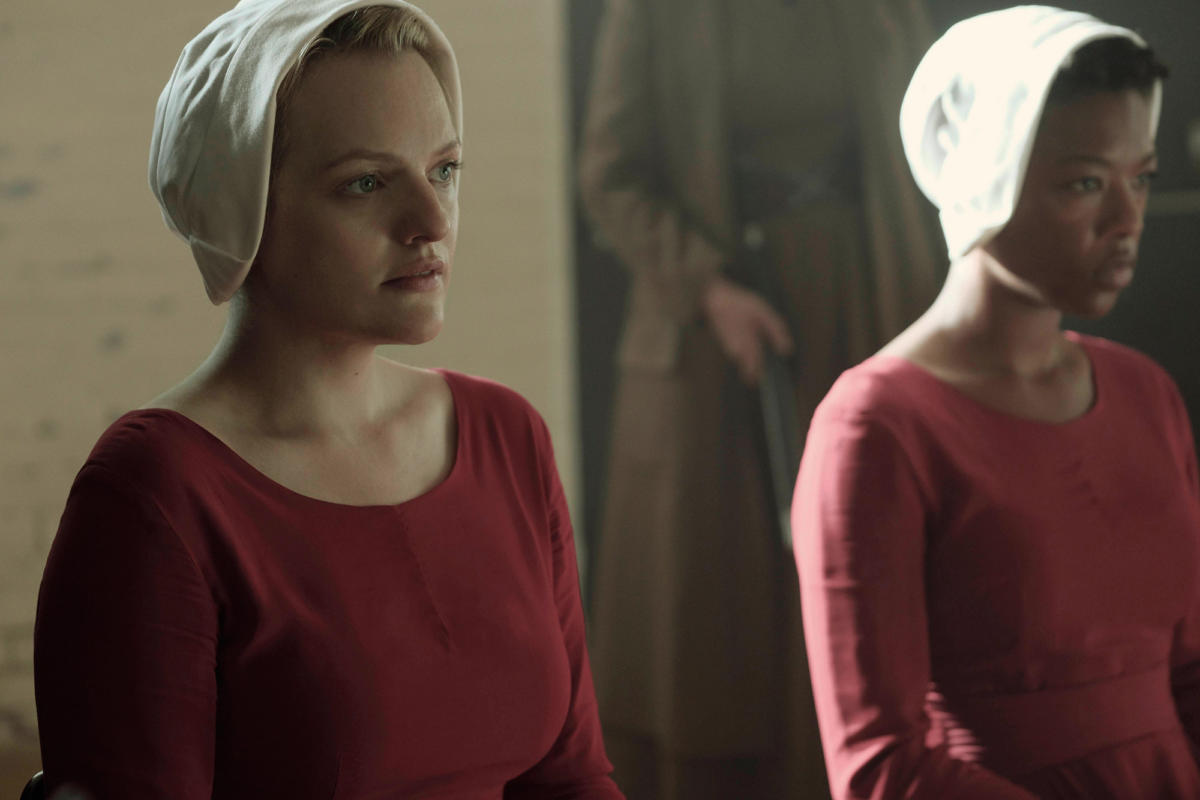‘The Handmaid’s Tale’
TV Adaptation of Margartet Atwood’s Book Is Unsettlingly Relevant

Although it was written in 1985, there are many selections from Margaret Atwood’s The Handmaid’s Tale that still read as unsettlingly relevant in our post-election America. For example: “It could be old clips; it could be faked. But I watch it anyway, hoping to be able to read beneath it. Any news, now, is better than none.” Or “This may not seem ordinary to you now, but after a time it will. It will become ordinary.”
The world Atwood created for her novel feels current, so much so that when Hulu released a trailer for its adaptation of the dystopian classic, some conservatives believed it was created in response to Donald Trump’s presidential win. Since the first five episodes were released, viewers have continued to comment on how timely this particular story is, a cautionary tale that feels especially prescient at a time when reproductive rights are being threatened, politicians call pregnant women “hosts,” and sexual assault and domestic abuse can qualify as “pre-existing conditions” that affect your insurance coverage.
Yet after 32 years and various incarnations — as a film (1990), an opera (2000), and a play (2015) — it seems less timely than timeless, a horrifying story that generation after generation seems doomed to find unsettlingly truthful and relatable. The Handmaid’s Tale veers away from the traditional Big Question of science fiction, “Could this really happen?” and toward the nauseating conclusion that it may, to some degree, have already started.
There are two nightmarish worlds coexisting in Hulu’s recently released adaptation. First and perhaps foremost, the audience is introduced to the land of Gilead in the not-so-distant future, an America in which Christian fundamentalists have taken control of the country in the wake of a plummeting birthrate. Women are treated as objects, banned from owning property, holding jobs, and even from reading. Those who are fertile are conscripted into service as pregnancy vessels for powerful men and their wives. Mad Men’s Elisabeth Moss stars as Offred, one such “handmaid” stripped of her former identity — silenced through fear and forced to participate in monthly “ceremonies” with the high-powered Commander of her household in order to provide him with a child.
The second world into which viewers are welcomed is more familiar and, in a way, more frightening. We are shown Boston, Massachusetts, on the cusp of collapse through the effective use of flashbacks. It’s an ordinary world of Tinder and Uber, casual morning runs through the park, and everyday sexism. But ever-present subtle threats take shape in a coffee shop cashier who sneeringly spews out derogatory insults without provocation, and in an employer who weakly apologizes for the new law that has led him to fire all of his female employees en masse. It even appears in Offred’s loving husband, who vows, with the best of intentions, to take care of her when the next law locks her out of her own bank account. She is devastated and bewildered by the government’s attack on her independence and feels a lingering spark of suspicion when her husband misses the point entirely. A sense of danger and fear seems to hang in the air in these moments, hinting at the terrors to come.
Reed Morano, director of the first three episodes, and show-runner Bruce Miller manage to impart both visceral horror and social commentary with a skillful, delicate hand, assisted by the superlative costuming by Ane Crabtree, an outstanding performance by Moss, and a pop music score that provides the sharp commentary the suffering protagonist is unable to express. Still, there is hope Offred won’t stay silenced. In this horrific world of commonplace oppression, it is revealed to Offred that there is an “us,” a resistance movement brewing in Gilead. Left to reflect on the possibility of a resistance, Offred stands in the rain outside of her Commander’s home and dares to imagine the possibility of a brighter future. “There is an us? Seems imagined, but there has to be an us because there is a them.”
New episodes of The Handmaid’s Tale premiere Wednesdays on Hulu.



